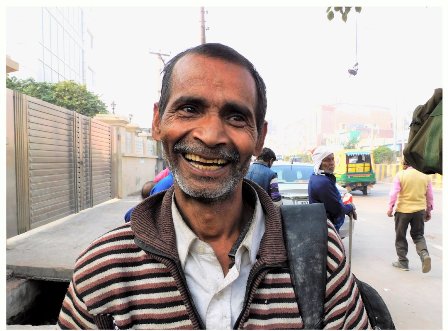Reimagining Migration and Mobility Must to Build Back Better Post-Pandemic
The conclave discussed the partnerships and collaborations to support migrant labours and shared initiatives and measures to support the migrant workers.
A group of 20 countries had lost about 125 million full-time jobs in 2020, clearly showing the pandemic’s impact on labour forces and migrants. “As we move towards the road to recovery, migration and mobility must be recognised as indispensable to the pandemic response and build back better. We cannot build back better without migrants; that is the reality we need to acknowledge,” said Sarat Dash, Chief of Mission, International Organization for Migration (IOM). He was addressing the National Conclave “Impact of COVID-19 on Migration: Benchmarking of Good Practices and Preparing for Future,” jointly organised by IOM and NITI Aayog in New Delhi.
pandemic’s impact on labour forces and migrants. “As we move towards the road to recovery, migration and mobility must be recognised as indispensable to the pandemic response and build back better. We cannot build back better without migrants; that is the reality we need to acknowledge,” said Sarat Dash, Chief of Mission, International Organization for Migration (IOM). He was addressing the National Conclave “Impact of COVID-19 on Migration: Benchmarking of Good Practices and Preparing for Future,” jointly organised by IOM and NITI Aayog in New Delhi.
At the height of the pandemic, another problem that everyone witnessed was the spread of fake news, misinterpretation and politicisation of such issues that become a matter of concern in the times of uncertainty and danger that existed. It is important to ensure the continuation to access essential services, mitigate the risk, protect the mobile population, measures to reduce vulnerability through appropriate information, ensure that pandemic doesn’t create a new reason for discrimination against the migrants, and last but not the least strengthening decision making through data.
“Migrations play a very crucial role in the pace and patterns of India’s development”, said Sanjay Awasthi, Head of Office, IOM, New Delhi. Awasthi shared that migrants make significant contributions to both the country of destination and the countries of origin and how internal migrants are an integral part of our economy and society. COVID-19 has highlighted the gaps in the available evidence and showcased the need to innovate and strengthen existing systems and practices.
The conclave was held to share the good practices, and lessons learnt from the collective efforts and to understand the critical importance of the multi-stakeholder approach with the UN Agencies, civil society organisations, private sector, unions and associations for the protection and welfare of migrant workers.
Dr. Muniraju, Deputy Advisor, NITI Aayog, mentioned India’s government’s role state governments and NITI Aayog collectively played during the pandemic and how they fully coordinated with the CSOs and UN agencies to ensure that no one was left unlooked but were taken care of. The Ministry of Labour and Employment came up with a portal exclusively for migrant workers, apart from several other initiatives like free food distribution drives. Prime Minister SVANidhi scheme for the street vendors was launched, special employment generation initiative under the Garib Kalyan Rojgar Yojana was created to provide employment for the returnee migrants. The ministry issued several advisories to nominate state-level officers for better implementation and coordination for the welfare of the returnee migrants. Dr. Muniraju shared about the initiative of NITI Aayog, which constituted subgroups of migrant workers with representatives from the Government of India, CSOs, and UN agencies, including IMO, UNDP, WHO, and World Bank. Official representatives from various states and representatives of prominent civil society organisations participated and shared their responses to the migrant workers’ issue during the pandemic.
Also Read: Long Wait for Justice for Migrant Workers Affected by Wage Theft
Mr Surendra Yadav, Labour Commissioner, Maharashtra, Smt. Rani Kumudini, Special Chief Secretary, Telangana, Ms. Shruti P Modi, Deputy Commissioner of Labour, Gujarat, Dr. Kalpana Gopalan IAS, Additional Chief Secretary, Department of Labour (Karnataka), Ms. Jhumar Mehta, Consultant (Jharkhand), Ms. Chitra Arumugam, Odisha and Ms. P Sumiti, Joint Commissioner of Labour, Tamil Nadu, showcased their best practices and learnings on promoting safe migration during the pandemic.
The conclave discussed the partnerships and collaborations to support migrant labours, a guide to the long and short-term consequences of the COVID-19 pandemic on the supply chain management and employment security framework, an outlook toward fair and ethical recruitment, creating safety nets and leveraging technology to address challenges faced by migrant workers for bridging the demands supply gap in labour-intensive sectors, was discussed. The participants shared about initiatives and measures taken by them to support the migrant workers, which included skill development, relocation, documentation and residential support, ethical and responsible recruitment with zero recruitment fee, organising vaccination drives, creating an anxiety-free atmosphere and video call support, country to country approach for targeting and reducing the risk of forced labour for migrant workers, health, safety and social security measures, implementing a non-discrimination policy for the migrant workers, registering workers on tech platforms along with providing training and empowerment support to improve literacy, awareness and skills, reducing absenteeism and enhancing business productivity by supporting children’s education and emotional support, etc.
Ms. Hyun Hee Ban, Chief, Social Policy, UNICEF, discussed social protection and portability of entitlements for women and children impacted by the migration. She said one in every five internal migrants are children, and over 50 million children are exposed to migration every year. Even before the pandemic, they were invisible and vulnerable. Therefore, a clear policy response for children impacted by migration is required. UNICEF’s efforts to address migration-related vulnerabilities include policy advocacy, child cash grants to address child labour and migration, community-based interventions and awareness, system strengthening, secondary education and data collection, tracking systems and evidence building.
